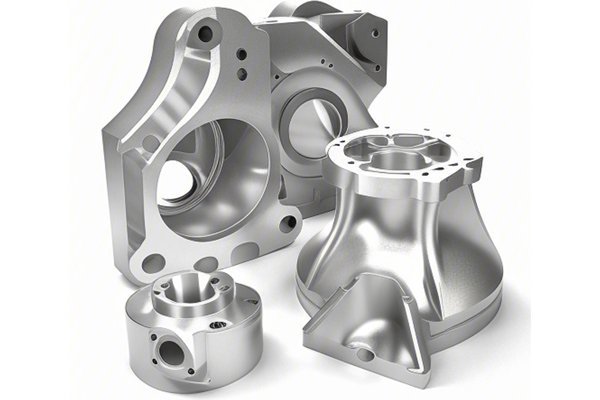Did you know that nearly 70% of manufacturers believe their ability to respond quickly to customer demands is essential for remaining competitive? In today’s fast-paced world, where customer expectations are at an all-time high, CNC (Computer Numerical Control) precision processing factories face immense pressure to deliver high-quality products on tight deadlines. The key to thriving in this challenging landscape lies in finding effective ways to ensure rapid response to customer needs.
As customer demands evolve and become more complex, CNC precision processing factories must implement strategies that not only enhance operational efficiency but also remain adaptable to changing market conditions. This blog delves into proven strategies, advanced technologies, and essential best practices that can help CNC factories meet their customers’ expectations faster and more effectively.
Understanding the Need for Rapid Response
Before diving into specific solutions, it is essential to understand why rapid response is critical for CNC processing factories. The rise of globalization and digitalization has transformed the market landscape. Customers now demand not just quality, but also speed, flexibility, and personalization. With competitors continually emerging and technological advancements pushing the envelope, CNC factories must be in a constant state of readiness to adapt to changes.
The implications of failing to respond quickly can be severe, often resulting in lost business, diminished customer loyalty, and damage to a company’s reputation. This reality makes it essential for CNC precision processing factories to invest time and resources into developing systems for efficient responsiveness.
Strategies for Ensuring Rapid Response
Technology is the cornerstone of modern manufacturing and plays a crucial role in enhancing responsiveness.
a. Real-Time Data Analytics
Utilizing data analytics tools enables factories to gather and analyze real-time information about production processes, supply chain status, and customer orders. By implementing advanced software that tracks factory performance metrics, CNC factories can identify bottlenecks and optimize workflows accordingly.
b. Automation and Robotics
Integrating robotics within CNC processing can drastically reduce operational times. Automating labor-intensive tasks not only speeds up production but also minimizes human error, ensuring consistent quality.
c. Artificial Intelligence (AI)
AI has emerged as a game-changer in manufacturing. Predictive maintenance powered by AI algorithms can anticipate equipment failures before they occur, allowing for preventive maintenance actions that minimize downtime.
d. Internet of Things (IoT)
IoT technologies can provide real-time monitoring of machinery and equipment. By using sensors that communicate directly with management systems, CNC factories can maintain optimal performance levels, ensuring they meet urgent customer demands swiftly.
A well-structured supply chain is vital for rapid responsiveness. Managing the procurement of raw materials and components effectively can help ensure that CNC factories are always ready to meet customer demands.
a. Strategic Sourcing
Building strong relationships with reliable suppliers is essential. CNC factories should evaluate potential suppliers based on their ability to deliver materials quickly, maintain quality standards, and provide competitive pricing. Partnerships with local suppliers can help reduce lead times and transportation delays.
b. Inventory Management
Utilizing inventory management systems can streamline stock levels and ensure that necessary materials are on hand when production demands arise. Practices such as Just-In-Time (JIT) inventory management can minimize waste and optimize resource allocation.

c. Digital Supply Chain Solutions
Implementing digital solutions that provide transparency and traceability across the supply chain can improve responsiveness. Cloud-based systems allow all stakeholders to access real-time data, facilitating collaboration and decision-making.
Adapting production processes to meet changing customer needs is another key factor in ensuring a quick response.
a. Modular Manufacturing
Implementing modular manufacturing techniques allows factories to easily adjust production lines for various projects. Factories can reconfigure equipment and workflows to minimize downtime when switching between product types.
b. Mass Customization
CNC factories can utilize digital technologies to offer mass customization. By allowing customers to specify their unique requirements easily, manufacturers can maintain a competitive edge while ensuring rapid delivery of tailored products.
c. Agile Methodology
Adopting an agile manufacturing approach encourages CNC factories to be responsive and adaptable in their production processes. Agile methodologies can foster collaboration among teams, prioritize tasks effectively, and reduce the time it takes to bring products to market.
Effective communication both within the factory and with clients helps improve responsiveness.
a. Internal Communication Tools
Developing centralized communication platforms that allow real-time updates among teams can minimize delays in decision-making. Tools such as Slack or Microsoft Teams can facilitate seamless communication across departments.
b. Customer Relationship Management (CRM) Systems
Implementing advanced CRM systems enables CNC factories to track customer inquiries, orders, and feedback. A centralized database ensures that all customer interactions are logged and monitored, allowing for timely responses to their needs.
c. Regular Customer Feedback Loops
Encouraging regular feedback from customers provides invaluable insights into their evolving needs. Conducting surveys or holding regular check-in meetings allows manufacturers to stay aware of any shifting trends or expectations.
In summary, CNC precision processing factories must prioritize rapid response to customer needs to remain competitive in today’s fast-evolving market. By leveraging advanced technology, optimizing supply chain management, adopting flexible production strategies, and enhancing communication channels, these factories can significantly improve their responsiveness.
Understanding the importance of speed, precision, and adaptability is more critical than ever in the manufacturing industry. By embracing these strategies, CNC processing factories not only enhance customer satisfaction but also solidify their position as leaders in the field. As customer expectations continue to grow, now is the time to reflect on the responsiveness of your operations and look for opportunities to improve.
Implementing these practices may not only revolutionize how CNC factories operate but can also pave the way for sustainable growth and success in an increasingly competitive landscape. As you consider these points, ask yourself: Is your factory prepared to meet the challenges of rapid response and customer satisfaction head-on?






